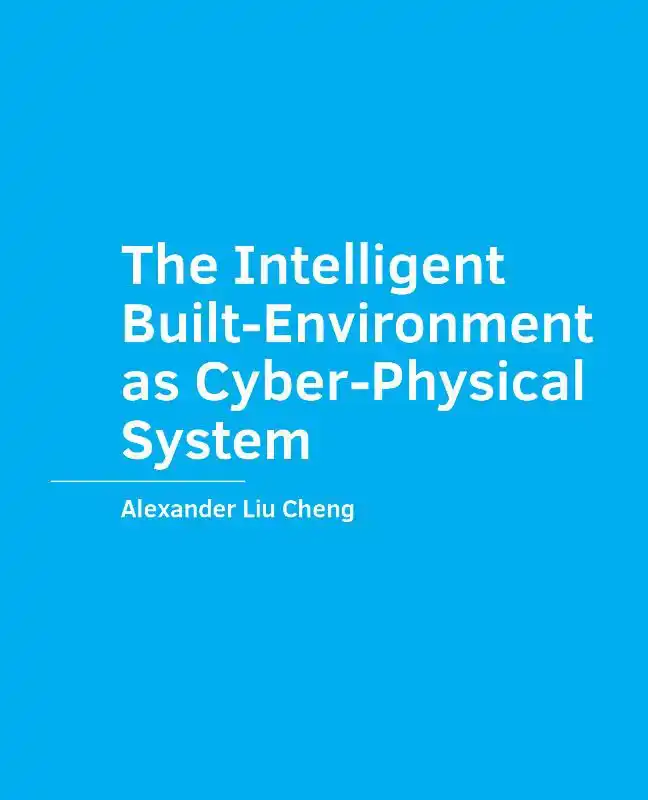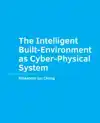- Engels
- Study
- nature & science
- technische wetensch.
- bouwkunde
- THE INTELLIGENT BUILT-ENVIRONMENT AS CYBER-PHYSICAL SYSTEM
LIU CHENG, ALEXANDER
THE INTELLIGENT BUILT-ENVIRONMENT AS CYBER-PHYSICAL SYSTEM
19,95incl BTW
Vertrouwd sinds 1927
Persoonlijke aandacht en advies
Vanaf 17,50 gratis verzenden NL & BE
Meer dan 150.000 artikelen online
Omschrijving THE INTELLIGENT BUILT-ENVIRONMENT AS CYBER-PHYSICAL SYSTEM
This thesis presents an alternative approach to intelligence in the built-environment, departing from the two established yet divergent branches in the discourse: the Technical, centered around Information and Communication Technologies (ICTs), and r
epresented by Ambient Intelligence (AmI) and Ambient Assisted Living (AAL); and the Architectural, centered around architectural / spatial experiences and considerations, and represented by Interactive Architecture and Adaptive Architecture.
The
promise of both AmI/AAL and IA/AA is constrained by rigid and increasingly outdated assumptions in their approaches-i.e., AmI''s / AAL''s approach to the built-environment, and IA''s / AA''s approach to ICTs. Moreover, it is impossible to combine th
em to yield a cohesive system due to disparity in their typical Technology Readiness Levels. That is, the sophistication of a system depends on that of its mutually complementing subsystems; and two or more subsystems may not mutually complement, sus
tain, and/or support one another if their levels of development do not correspond.
Consequently, the presented alternative conceives the intelligent built-environment as a Cyber-Physical System. Under this approach, ICTs and Architectural consid
erations in conjunction instantiate intelligence fundamentally. The presented approach''s promise is illustrated via its application to a constrained use-case focused on the elderly. Twelve proof-of-concept demonstrators are developed based on key pa
rameters pertaining to Indoor Environmental Quality and Quality of Life. While each demonstrator is presented as a discrete proof-of-concept, all build on the same core System Architecture and technological ecosystem, and are intended to be viewed as
a collection of systems and services expressed within a same hypothetical environment.
epresented by Ambient Intelligence (AmI) and Ambient Assisted Living (AAL); and the Architectural, centered around architectural / spatial experiences and considerations, and represented by Interactive Architecture and Adaptive Architecture.
The
promise of both AmI/AAL and IA/AA is constrained by rigid and increasingly outdated assumptions in their approaches-i.e., AmI''s / AAL''s approach to the built-environment, and IA''s / AA''s approach to ICTs. Moreover, it is impossible to combine th
em to yield a cohesive system due to disparity in their typical Technology Readiness Levels. That is, the sophistication of a system depends on that of its mutually complementing subsystems; and two or more subsystems may not mutually complement, sus
tain, and/or support one another if their levels of development do not correspond.
Consequently, the presented alternative conceives the intelligent built-environment as a Cyber-Physical System. Under this approach, ICTs and Architectural consid
erations in conjunction instantiate intelligence fundamentally. The presented approach''s promise is illustrated via its application to a constrained use-case focused on the elderly. Twelve proof-of-concept demonstrators are developed based on key pa
rameters pertaining to Indoor Environmental Quality and Quality of Life. While each demonstrator is presented as a discrete proof-of-concept, all build on the same core System Architecture and technological ecosystem, and are intended to be viewed as
a collection of systems and services expressed within a same hypothetical environment.
Specificaties
- MerkBK Books
- GroepTECHNISCHE WETENSCH (950)
- Barcode9789463667913
- LeverstatusActief
Reviews
0.0/5.0
Gemiddelde uit 0 reviews
Meest behulpzame reviews
Nog geen reviews geschreven


